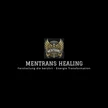Excellence in advanced aesthetics and regenerative medicine LAGO COSMETICS: Excellence in advanced aesthetics and regenerative medicine in an exclusive setting. ABOUT LAGO COSMETICS Lago Cosmetics, located in the heart of beautiful St. Moritz, is specialized in advanced body and facial treatments, as well as permanent makeup and microblading. In the MEDICAL section, the focus is on aesthetic medicine, IV therapy, and holistic concepts. Our choice of techniques, equipment, and products reflects the highest standards of quality and efficiency. We use cutting-edge technologies and premium products to deliver optimal results. Our mission is to provide our demanding clients and patients with a first-class experience and exceptional outcomes in a modern, elegant, and welcoming environment. In a private atmosphere with no waiting times, every treatment is tailored and personalized. We place great emphasis on continuous education and hygiene. Trusted and classic techniques are combined with the latest trends and adapted individually to each client. Perfection is our standard. Every day we commit ourselves to meet your highest expectations in terms of quality, results, and service. To ensure maximum privacy, the studio can also be accessed through a discreet rear entrance with direct access for cars or limousines. Leadership and Expertise Olga Thraen – Founder and Director Olga Thraen combines her passion for aesthetics with over 15 years of experience as a successful CEO. After a career change, she founded her exclusive aesthetic studio LAGO COSMETICS in St. Moritz, where client satisfaction and the highest standards of treatment are central. Her international background and refined sense of luxury make her a sought-after expert in customized high-end beauty treatments. Dr. Ursula Kraneburg, MSc TMR – Specialist in Plastic and Aesthetic Surgery Dr. med. Ursula Kraneburg is a board-certified specialist in plastic and aesthetic surgery, trained internationally and holding a master's degree in clinical research. Her aesthetic procedures are characterized by precision, elegance, and a deep understanding of natural beauty. She integrates state-of-the-art medical techniques with a holistic approach that includes traditional medicine, IV infusions, nutrition, and personal coaching. With her sharp eye for harmony and aesthetics, she designs personalized treatment plans for demanding patients who value outstanding results and complete well-being. VIP SERVICE As part of our First Class Service, selected aesthetic and medical treatments can also be performed in your hotel suite, private apartment, or home. We are happy to advise you. SERVICES BEAUTY TREATMENTS ENDOSPHERES AQUA PURE and LED Therapy DERMAPLANING FEATHERTOUCH MICRONEEDLING and HYDRA LIPS ALGAE PEELING PLASMA PEN LASH & BROW LIFT MICROBLADING PERMANENT MAKEUP MEDICAL AESTHETIC TREATMENTS • DERMAL FILLERS and BOTOX • BIOSTIMULATORS and SKIN BOOSTERS • MESOTHERAPY • PRP – Vampire Lift (Platelet-Rich Plasma Therapy) • IV DRIPS (Intravenous Infusion Therapy) • THERMAGE FLX (Radiofrequency Skin Tightening) • THREAD LIFT • FAT-DISSOLVING INJECTIONS (Injection Lipolysis) • HAIR RESTORATION with PRP, Polynucleotides, and Exosomes


















